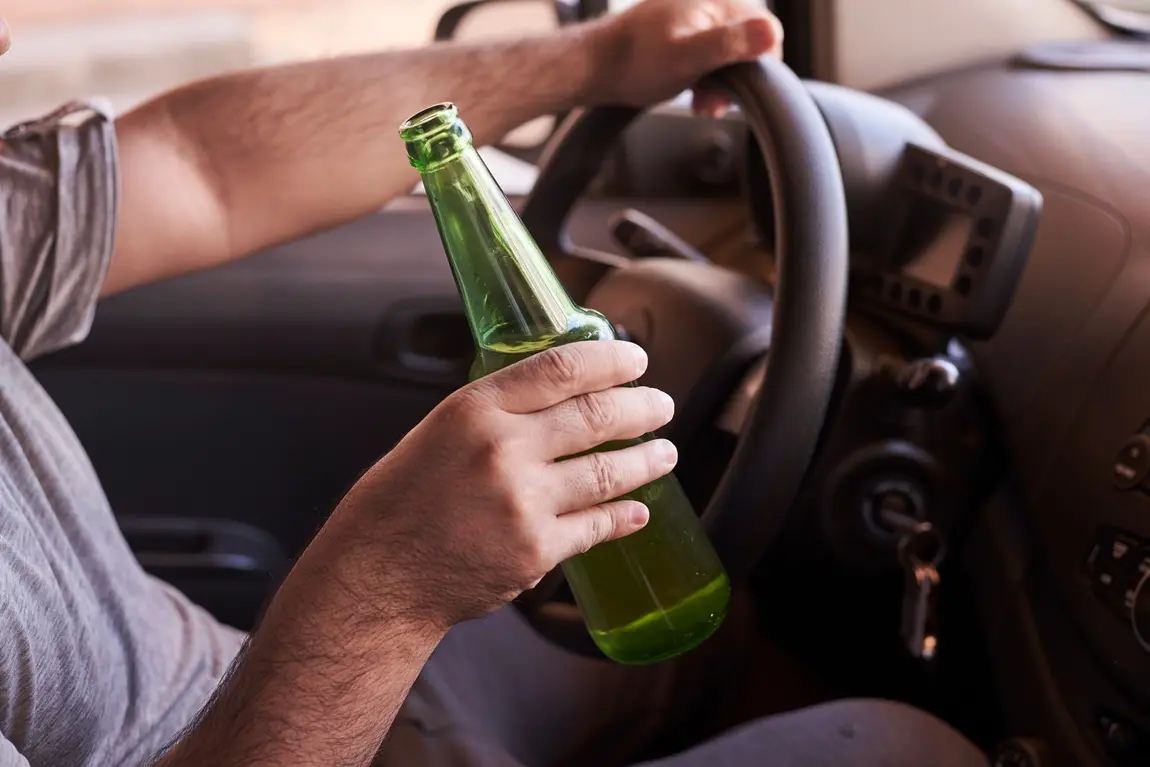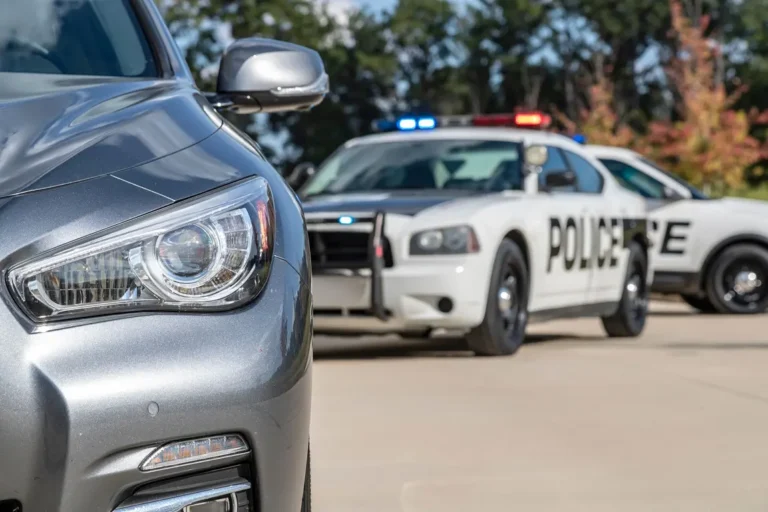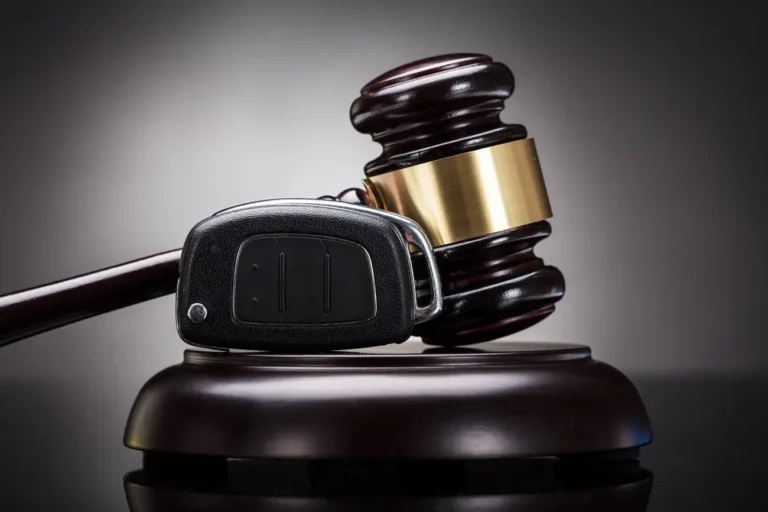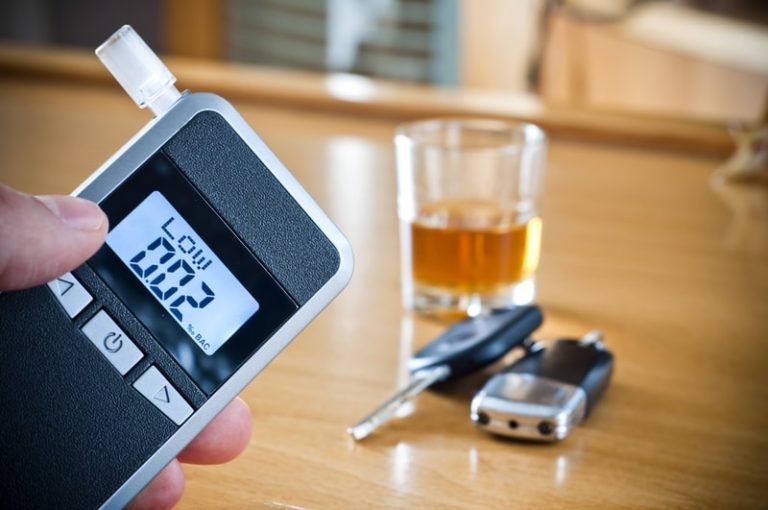
Intoxicated driving is one of the most common criminal charges in Ohio.
The Ohio State Highway Patrol reports that 19,008 people were arrested on OVI charges in the state in 2018 alone.
No matter the specific circumstances, an OVI charge is always a serious matter. Even a first-time OVI conviction could result in a defendant facing severe penalties.
Here, our Dayton OVI lawyers give an overview of the Ohio OVI laws. We will also explain what to expect if you are facing a first-time intoxicated driving offense.
DUI charges in Dayton are heard in the Dayton Municipal Court at 301 West Third Street, Dayton, Ohio.
For a free consultation, please call (937) 872-4166 or fill out our online form today.
OVI Ohio First Offense: What Am I Facing?
Under Ohio law (Ohio Revised Code § 4511.19), it is unlawful to operate a motor vehicle under the influence of alcohol or drugs. Ohio has graduated penalties for OVI offenses. This means a defendant will face worse penalties with each intoxicated driving offense.
Still, a first-time OVI is not a minor issue. For a first-time OVI, you will face both criminal and administrative penalties. Let’s take a look at some of the penalties you might face.
Criminal Ohio OVI Penalties for a First-Time Offender

Ohio OVI first-offense penalties will vary depending on your blood alcohol concentration (BAC) level when you are arrested and processed.
If you are convicted for a first-offense OVI in Ohio with a BAC above 0.08% but below 0.17%, it is punishable by the following:
- Up to a $1,075 fine;
- A minimum of three days in jail but up to six months. However, enrollment in a driver’s intervention program may be used in lieu of a jail sentence.
Following a conviction, you also face up to three years of driver’s license suspension.
If you are convicted of your first OVI in Ohio, but your BAC is above 0.17%, it is punishable by:
- Up to $1,000 fine;
- A minimum of six days in jail but up to six months;
- Loss of your driver’s license for up to three years;
- Installation of an ignition interlock device (IID) in your vehicle;
- Mandatory yellow restricted license plates;
- Any combination of the above.
Two of these penalties require additional explanation. Yellow license plates, officially called “restricted license plates” and colloquially called “party plates” in Ohio, alert the public and police officers of your OVI.
Judges must require everyone convicted of a high alcohol OVI to have yellow plates on their cars if they receive limited driving privileges. These privileges get granted when your license suspension prevents you from going to work, school, or other necessary destinations.
An ignition interlock device is a breath test connected to your car’s ignition. The IID prevents your car from starting unless you blow into it and pass an alcohol test. The IID might also require random retests while you drive to keep the vehicle running.
Judges will require an ignition interlock device when granting limited driving privileges during your license suspension period. Although the IID may allow the engine to start with a blood-alcohol level up to 0.02%, it records your tests. You might violate the terms of your limited driving privileges if you try to drive after drinking alcohol.
You can also face these enhanced penalties for a first offense with a BAC below 0.17% but accompanied by a refusal to submit to a breathalyzer charge.
Whether you blew a 0.08% or 0.17%, a first DUI in Ohio has the potential for steep consequences that will undoubtedly impact your life. Hiring a knowledgeable and skilled DUI defense attorney is your best defense at beating the charges.
Administrative Penalties: Your License Will Be Automatically Suspended — Unless You Act
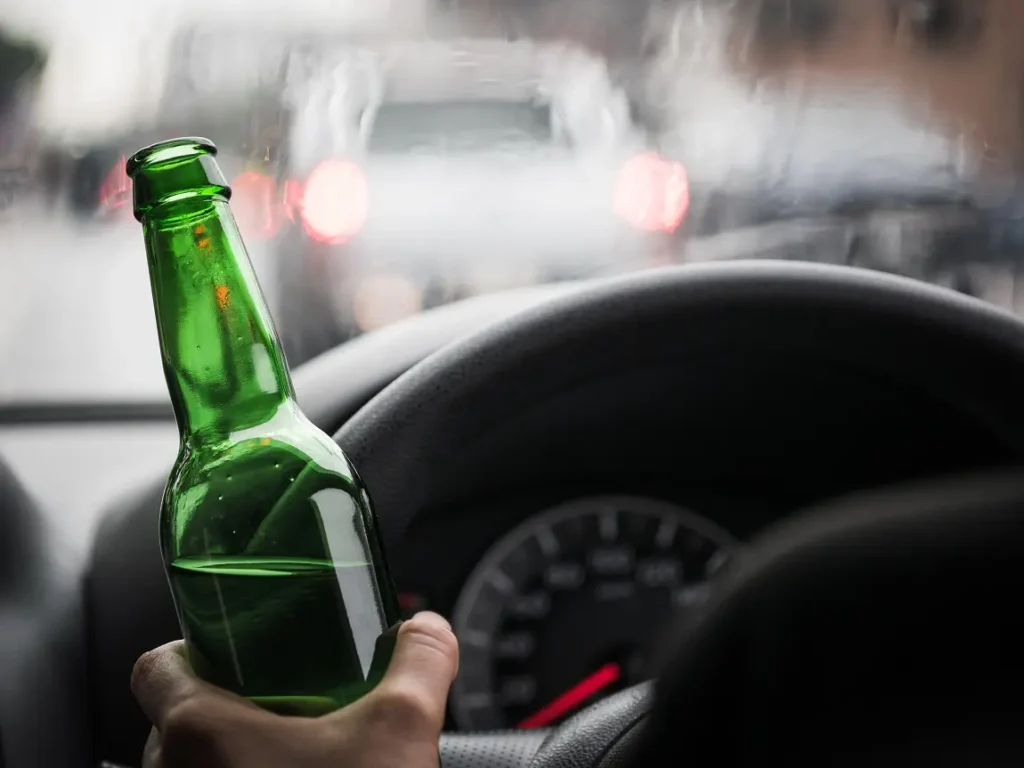
If you get charged with a drunk driving offense in Ohio, your license will be suspended before you get a hearing on your case.
An administrative license suspension (ALS) is imposed by the Ohio Bureau of Motor Vehicles, separate and in addition to any license suspensions imposed by the criminal court judge as a part of an OVI sentencing. You might be thinking, Can I face an ALS for a first-offense OVI? And it might surprise you to learn that you can face an ALS for a first-offense OVI if you refuse to submit to a breathalyzer or blood test.
An ALS is immediately imposed if you refuse a chemical test or the test result shows a BAC that exceeds the legal limit. A refusal to submit to a chemical test will result in a 12-month suspension, and if the test result shows you are over the legal limit, it will result in a 90-day suspension.
You can take action to stop this. Contact an experienced OVI Ohio defense lawyer after your drunk driving arrest. You have 30 days to request a hearing to challenge the automatic suspension.
Overview of Penalties for a First-Time OVI Charge in Ohio
| Penalty | First OVI with a “Low” BAC | First OVI with a “High” BAC | First OVI with a “Refusal” |
|---|---|---|---|
| Fines | $375 to $1,075 | $375 to $1,075 | $375 to $1,075 |
| License Suspension | 6 months to 3 years | 1 year to 3 years | 1 year to 5 years |
| Jail Time | 3 days to 180 days | 6 days to 180 days or 3-day DIP and 3 days jail | 3 days to 180 days or 3-day DIP and 3 days jail |
| Points on License | 6 points | 6 points | 6 points |
| Ignition Interlock Device | May be required | Required | Required |
| Alcohol/Drug Treatment | May be required | May be required | May be required |
| Community Service | May be required | May be required | May be required |
| Restricted Plates | Not required | May be required | May be required |
| Vehicle Immobilization | Not required | Not required | May be required |
Note:
- “Low” BAC refers to a blood alcohol concentration of between 0.08% and 0.169%;
- “High” BAC refers to a blood alcohol concentration of 0.17% or higher;
- “Refusal” refers to refusing to take a chemical test after being arrested for OVI;
- DIP refers to the Driver Intervention Program.
Other Collateral Consequences of Even a First-OVI Conviction
Driving while intoxicated is deeply frowned upon by most of society. A conviction will carry a negative stigma that may impact your relationship and reputation among your relatives, friends, co-workers, and peers.
In addition to the above statutory penalties for a first offense, you also face the following:
- A criminal record;
- Restrictions on entering certain countries, like Australia and Canada;
- Ineligibility for certain government assistance programs;
- Expulsion from school or loss of financial aid;
- Restrictions on renting a car from certain rental car companies;
- Increased insurance premiums or a loss of your insurance coverage as you become uninsurable;
- Six points on your driver’s license;
- Immigration consequences;
- The risk of losing your current job or the inability to obtain gainful employment.
Of these, the criminal record has the most serious long-term effects. Your OVI could show up on any check of your criminal background or driving record. Thus, a landlord might find out about your OVI in a background check and refuse to rent a home or office to you.
More importantly, you might have a legal duty to affirmatively report a conviction. For example, if you have a professional license, like a contractor’s license or nursing license, you may need to disclose your OVI. The licensing board could suspend your license for your conviction. The board could also suspend your license if you unsuccessfully try to conceal the conviction and it finds out about it.
Importantly, under Ohio law, OVI’s are ineligible for expungement or sealing, which means a conviction will remain on your record for the rest of your life.
You May Face Additional Penalties If Other “Aggravating Factors” Are Present
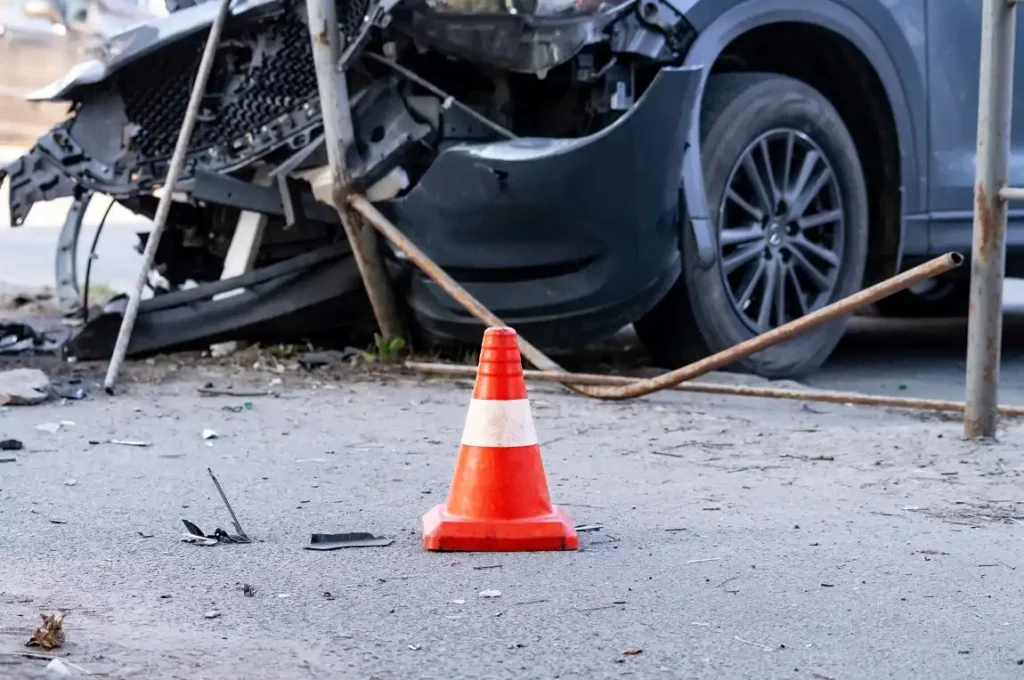
A history of OVI offenses is not the only factor that impacts the criminal penalties in these cases.
A defendant could be charged with a more severe OVI offense if:
- They were highly intoxicated — a BAC level above .17;
- The accident resulted in significant property damage or an injury;
- There was a minor present within the vehicle;
- Other traffic offenses, such as reckless driving, were committed at the same time.
No matter the circumstances of your OVI arrest, you need an experienced DUI defense attorney to advocate on your behalf.
Underage OVI Charges
In Ohio, as in the rest of the country, you must be 21 years old to purchase and consume alcohol legally. Likewise, if you are under 21 and are caught driving while under the influence, you will face an underage OVI charge. While the legal blood alcohol concentration for adults over 21 is 0.08%, if you are under 21, the legal BAC limit is substantially more strict at just 0.02%.
Practically speaking, just a few sips of an alcoholic beverage may put you over the legal limit if you are under 21. An underage OVI can drastically affect your life, affecting your ability to apply for higher education programs, the military, and more.
What Are the Defenses for a First-Offense OVI?
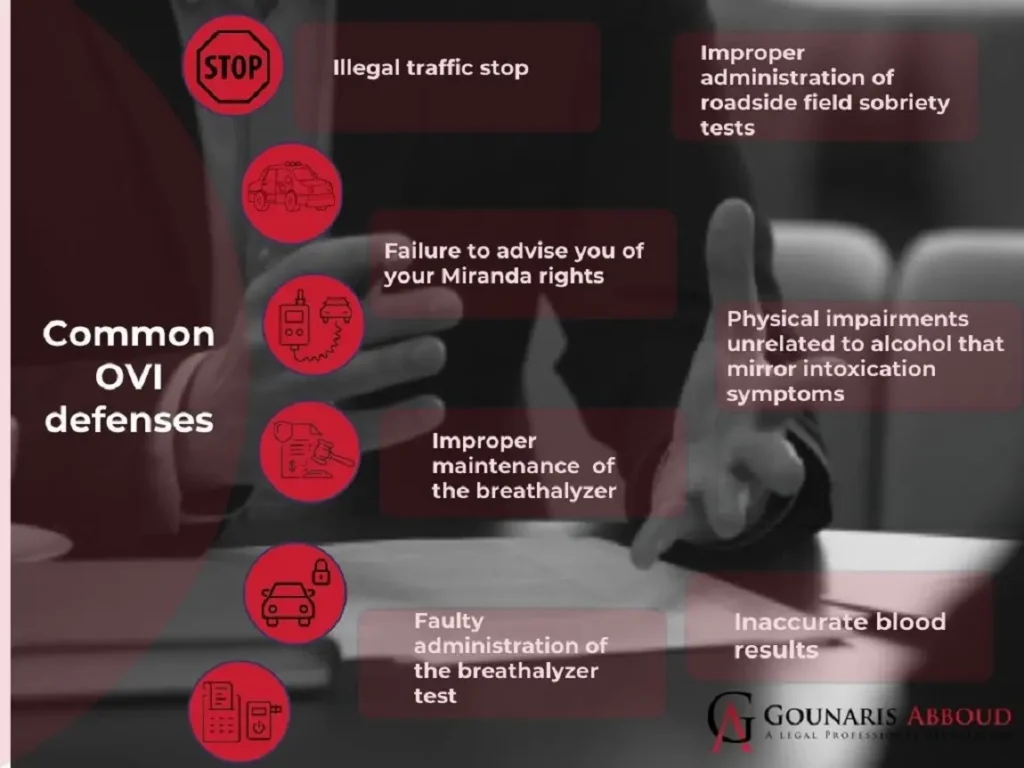
While drunk driving charges are serious and consequential, facing a charge does not automatically mean you will be convicted. Prosecutors pursue OVI cases aggressively, but with the proper defense, it is possible to beat the charges.
Common OVI defenses include the following:
- Illegal traffic stop (i.e., law enforcement did not have reasonable suspicion or probable cause to effectuate the stop);
- Improper administration of roadside field sobriety tests;
- Failure to advise you of your Miranda rights after being detained;
- Faulty administration of the breathalyzer test;
- Improper maintenance or calibration of the breathalyzer machine that led to a faulty reading;
- Inaccurate blood results;
- Physical impairments unrelated to alcohol that mirror intoxication symptoms (e.g., you have physical injuries that caused you to stumble or allergies that caused your glassy eyes).
Remember, not every case is the same, and the defense that may have worked for your friend or neighbor may not work in your case. The best way to determine the most effective defense is to meet with our DUI lawyers. We will listen to your story, review and analyze the evidence against you, and strategize your best defense.
Speak to a DUI Defense Attorney in Dayton, Ohio
At Gounaris Abboud, LPA, our Ohio drunk driving defense lawyers have more than 50 years of experience protecting the rights of our clients.
If you or a family member was arrested for a first-time OVI offense, we can help. To arrange a free, no-obligation analysis of your case, please contact our law firm online or call (937) 872-4166 right away.
With offices in Dayton, Springboro, and West Chester, we serve clients throughout the region, including in Montgomery County, Warren County, and Butler County.
